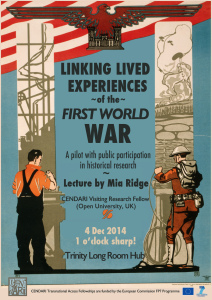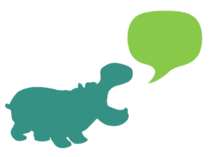I've been asked to give a workshop on Information Visualisation for the CHASE Arts and Humanities in the Digital Age training programme in June 2015.
The workshop will introduce students to the use of visualisations for understanding, analysing and presenting large-scale datasets in the Humanities, enabling scholars to ask increasingly complex research questions.
Slides, sample data and instructions for exercises are downloadable here: CHASE InfoVis Handouts 2015.
Links for the various exercises are collected below for ease of access.
Exercise 1: Exploring network visualisations
- http://fredbenenson.com/2012/12/05/the-data-behind-my-ideal-bookshelf/
- http://textexture.com/index.php?text_id=603
- http://kindred.stanford.edu/
- http://hci.stanford.edu/jheer/files/zoo/ex/networks/force.html
- http://www.moma.org/interactives/exhibitions/2012/inventingabstraction/?page=connections
Exercise 2: Comparing N-gram tools
Books
Newspapers
- http://arxiv.culturomics.org/ChronAm/
- http://dhistory.org/querypic/create/ (if that doesn't work, use http://dhistory.webfactional.com/querypic/)
Exercise 3: Trying entity recognition
- http://nlp.stanford.edu:8080/ner/
- More: http://nlp.stanford.edu:8080/corenlp/process
- An alternative demo site is TextRazor http://www.textrazor.com/demo
Exercise 4: Exploring scholarly data visualisations
- http://www.americanpast.org/emancipation/
- http://www.stanford.edu/group/toolingup/rplviz/rplviz.swf
- http://gap.alexandriaarchive.org/gapvis/index.html#index
- http://digitalharlem.org/
- http://orbis.stanford.edu/
- http://dp.la/
- http://tracemedia.co.uk/lostchange/
- http://benschmidt.org/poli/2015-SOTU
Exercise 5: create a chart using Google Fusion Tables
Google Fusion Tables: https://www.google.com/fusiontables/data?dsrcid=implicit
An Excel version of this exercise is available at https://www.openobjects.org.uk/2015/03/creating-simple-graphs-with-excels-pivot-tables-and-tates-artist-data/
Exercise 6: Geocoding data and creating a map using Google Fusion Tables
Google Fusion Tables: https://www.google.com/fusiontables/data?dsrcid=implicit
Exercise 7: Applying data visualisation to your own work
Explore more visualisations:
- Further examples: http://scholarlyvision.tumblr.com/
- More reading: https://www.miaridge.com/resources-for-data-visualisation-for-analysis-in-scholarly-research/
Sketch ideas for visualisations:
- http://www.dear-data.com/
- http://annkemery.com/dataviz-design-process/
- http://extremepresentation.com/design/7-charts/
Try visualising data in different tools:
- http://viewshare.org
- http://voyeurtools.org
- https://plot.ly
- http://raw.densitydesign.org
- http://palladio.designhumanities.org
- http://public.tableau.com
Try visualising existing data

